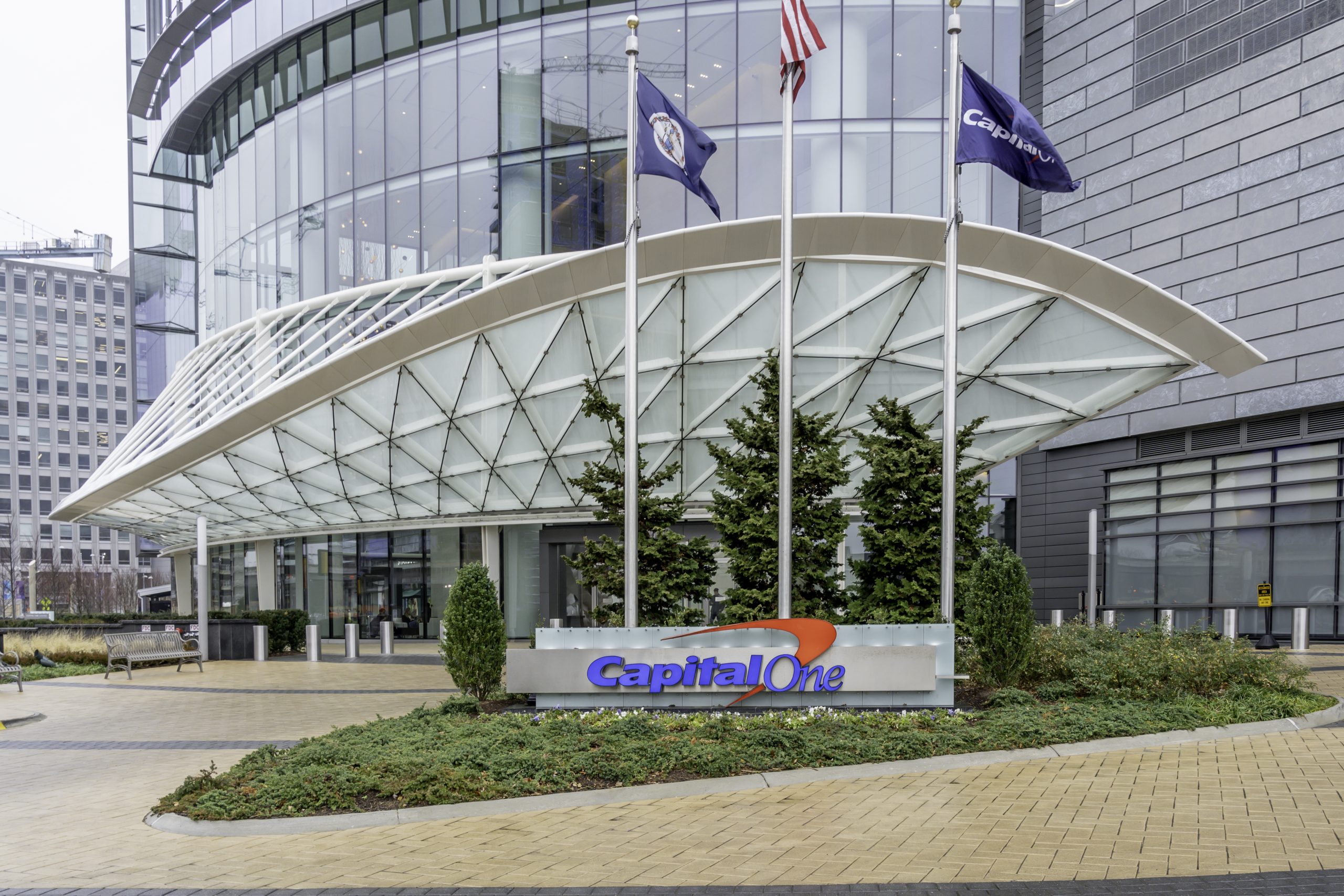The Financial Crimes Enforcement Network hit Capital One with a $390 million fine on Friday evening over admitted shortcomings in its anti-money laundering program from 2008 to 2014 that the agency said allowed millions of dollars in suspicious transactions to go unreported.
Capitol One has been hit with a $390 million fine for problems in its anti-money laundering program. (iStock.com)
The U.S. Treasury Department‘s financial crimes unit is crediting the bank for $100 million it paid the Office of the Comptroller of the Currency in 2018 in a related settlement over investigations into Capital One’s check cashing business unit, which it ceased in 2014.
As part of its settlement on Friday for what FinCEN called “willful and negligent violations of the Bank Secrecy Act,” Capital One admitted that from 2008 to 2014, it failed to both maintain an effective AML program and to file thousands of suspicious activity reports and currency transaction reports.
These failures allowed transactions involving proceeds from “organized crime, tax evasion, fraud, and other financial crimes laundered through the bank into the U.S. financial system” to go unreported, FinCEN said.
“The failures outlined in this enforcement action are egregious,” FinCEN director Kenneth A. Blanco said in a statement. “Capital One willfully disregarded its obligations under the law in a high-risk business unit.”
The bank said in its own statement on Friday that it was “fully reserved for this resolution” and has already paid the $290 million penalty to FinCEN, so “there is no further financial impact.”
“We are pleased to fully resolve the last-remaining government inquiry relating to a line of business the bank exited in 2014,” Capital One said.
The case relates to Capital One’s foray into the commercial check cashing business in 2008, which involved a network of check cashers in the New York and New Jersey areas and which the bank holding company decided to exit in 2014 in parallel with several regulatory investigations connected to the company’s clients.
FinCEN said Friday that Capital One was aware of “several compliance and money laundering risks” associated with the new business unit while it was being established, via warnings from regulators, criminal charges against certain check-cashing customers and internal assessments ranking many of those customers in the “top 100 of the bank’s highest risk customers for money laundering.”
Despite those red flags, the bank’s process for investigating suspicious transactions remained weak and resulted in widespread failures to report suspicious activity to FinCEN, the agency said. Even as it was detecting and reporting suspicious activity by certain check-cashing customers, Capital One failed to do the same for the check cashers themselves, according to Friday’s settlement announcement.
Capital One has also acknowledged that it failed to file suspicious activity reports even when it had actual knowledge of criminal charges against certain check-cashing customers, including an associate of the Genovese organized crime family who ultimately pled guilty to money laundering in May 2019.
“Capital One’s egregious failures allowed known criminals to use and abuse our nation’s financial system unchecked, fostering criminal activity and allowing it to continue and flourish at the expense of victims and other citizens,” Blanco said.
The bank has also admitted to negligently failing to file approximately 50,000 currency transaction reports tied to more than $16 billion in cash handled by its check-cashing customers.
Capital One said in its statement that the FinCEN settlement involved the same issues over which it paid a $100 million fine to the OCC, its primary regulator, in October 2018.
In its announcement Friday, FinCEN noted that Capital One had since exited the cash checking business, taken remedial efforts related to the filing systems for suspicious activity reports and currency transaction reports, and made significant improvements to its AML program in recent years.
“Capital One takes its anti-money laundering obligations very seriously,” the bank said in its own statement. “The bank has invested heavily in the enhancement of its AML program over the past several years under new AML leadership, and has worked closely with regulators and law enforcement to ensure our compliance processes and protocols are robust and thorough.”
Capital One is represented in the matter by Helen Cantwell, David Sarratt and Noelle Lyle of Debevoise & Plimpton LLP, Richard Cullen and John Adams of McGuireWoods LLP, and its own Steve Otero, Jon Campbell and Thomas Hall.
FinCEN’s assessment of the civil monetary penalty is In the Matter of: Capital One NA, case number 2021-01, before the Financial Crimes Enforcement Network.
–Editing by Emily Kokoll.
Article From www.law360.com





